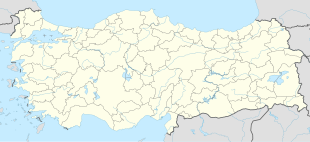2016–17 Turkish purges
| 2016–17 Turkish purges | |||
|---|---|---|---|
| Part of Turkish government–Gülen movement conflict | |||
| Date | 16 July 2016 – ongoing | ||
| Location | |||
| Status | Turkey's AKP government solidify control over military, judiciary, media, education. Over 120,000 judges, teachers, police and civil servants suspended or dismissed, together with about 40,000 formally arrested. |
||
| Parties to the civil conflict | |||
|
|||
| Lead figures | |||
|
|||
| Units involved | |||
|
|||
| Casualties | |||
|
|||
![]() Loyalists of the Turkish Armed Forces
Loyalists of the Turkish Armed Forces![]() National Intelligence Organization
National Intelligence Organization![]() Turkish parliament
Turkish parliament![]() Judiciary in Turkey
Judiciary in Turkey
About 160,000 people arrested, detained, dismissed.
15,846 detained(10,012 soldiers, 1,481 judiciary members)
8,133 of the detained had been arrested
The 2016–17 Turkish purges are an ongoing series of purges by the government of Turkey enabled by a state of emergency in reaction to the 15 July failed coup d'état. After the immediate arrest of military personnel accused of making the coup attempt, arrests were expanded to include further elements of the Turkish military service, as well as various civil servants and private businesses. These later actions, reflecting a power struggle between secularist and Islamist political elites in Turkey, which began to be known as a purge, affected people who were not active in nor aware of the coup as it happened, but who were alleged to be connected with the Gülen movement, a group which the government blames for the coup. Even the mere possession of books authored by Gülen may be considered evidence of such a connection and cause for arrest.
...
Wikipedia

